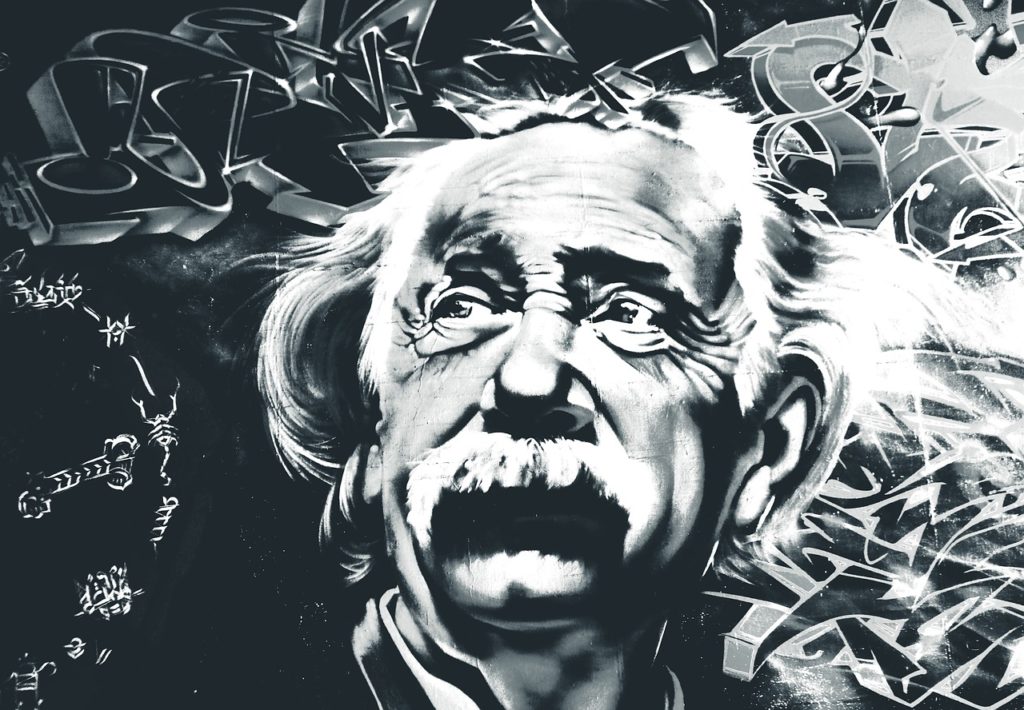In Part 1 of our series, we began the discussion by learning who exactly is considered the “authority” is in regards to the cannabis sativa plant: Who were these controlling forces? What did they want?
In our previous blog post, we also began to scratch the surface as to what we can begin doing to win back control over this ancient plant.
We ended off with a remarkable quote by Albert Einstein:
“Imagination is more important than knowledge. For knowledge is limited and imagination encircles the world.”

No doubt this man doesn’t need an introduction, because we all have a general idea how mind-blowingly intelligent he was, and how we’ve yet to see another intellect that compares.
After reading this quote, a question come to mind:
Why is the imagination the most powerful force in the universe (even more powerful than knowledge)?
TBH, trying to answer this question will probably require a lot more than a few blog posts. However, we hope we can give you enough points to understand it, and hopefully send you you off in the right direction of deeper thinking.
So, let’s getting this rolling!
We totally agree with Einstein. We think that the imagination is more powerful, and probably slightly more important than knowledge. Why? Because of how having specialized knowledge can influence the creative mind and the imagination.
Henry Ford, one of the 10 wealthiest people of all time, only had a sixth grade public school education; and Thomas Edison, the man who invented the lightbulb, only had three months of public school education.
Yet, these men went on to create some of the most incredible inventions humanity has ever seen, and still uses to this very day.
So, how was this level of innovation able to occur with such minimal schooling?
Our main man Mark Twain once said: “Don’t let schooling interfere with your education.”
Very interesting to note how some of the wealthiest men had what would be considered very little “schooling,” yet went on to achieve so much. If knowledge is to have little to do with it, could this be the space where imagination takes over? Was this what Einstein was talking about?
We recently read a pretty thought-provoking quote from Napoleon Hill, author of Think and Grow Rich:
“An educated man is not, necessarily, one who has an abundance of general or specialized knowledge. An educated man is one who has so developed the faculties of his mind that he may acquire anything he wants, or its equivalent, without violating the rights of others.”
Digging deeper…
Henry Ford asked to testify in a court case because the newspapers wanted to “prove” he was an ignorant man. After a series of questions, Henry Ford got offended by a particular question about his level of knowledge, and went on to put the questioner on blast:
“If I should really want to answer the foolish question you have just asked, or any of the other questions you have been asking me, let me remind you that I have a row of electric push-buttons on my desk, and by pushing the right button, I can summon to my aid men who can answer any question I desire to ask concerning the business to which I am devoting most of my efforts.
Now, will you kindly tell me, why I should clutter up my mind with general knowledge, for the purpose of being able to answer questions, when I have men around me who can supply any knowledge I require?”
[excerpt from “Think and Grow Rich” by Napoleon Hill]
Need more proof? There’s another a well-known story about Einstein which also lends to this idea of imagination being more important that knowledge.
Someone once asked Einstein what his telephone number was — simple enough, right? So, what did Einstein do? He stood up, grabbed the nearest phone book, and looked up his telephone number.
His reasoning? He didn’t want to clutter his mind with useless information, thus freeing his mind and allowing it to reach its fullest creative and imaginative abilities.
Useless, or unnecessary, information is exactly what these government-run schools want us to learn so as to clutter our minds.
What public schools really teach us? They teach us to obey authority, follow the status quo, no matter how ridiculous the actual notion may be. What is one of those notions? How cannabis is one of the most dangerous substances in known existence!
Why don’t members of the “elite” sect of society experience any competition? Why is imagination more powerful and more important than knowledge? The reason why the rich get richer, and the poor get poorer, is because the top 1% have certain pieces of information they carefully control that they don’t want the masses to become aware of.
What is it that public schools teach us? Knowledge. What are they “pushing” out of school? Imagination and creativity.
If the masses did have access to the same information as the elite members of society did, the playing field would be evened out — an unfavorable thought to the top one percenters.
Food for thought…
If the world was utilizing cannabis to its fullest potential, how many of the industries controlled by this select group would crumble overnight? Would these industries ever be able to keep up and compete with the cannabis sativa plant?
Can humans really create anything better than what cannabis can give us naturally? Now we know what you’re thinking… There definitely substances out there that can outperform cannabis, in certain and very specialized situations.

When we use the word “better,” we specifically mean cannabis is better at keeping more people alive than many of the substances that we have constantly thrown at us from any and all known industries.
Let’s move onto Questioning Perceived Authority Part 3 where we will be discussing the elite controllers more in-depth: how some of them might not actually be bad, and in fact, how some of them might be good.
- Top 5 Attractions In San Diego - November 28, 2017
- Top 5 Restaurants In San Francisco - November 24, 2017
- Questioning Perceived Authority, Part Deux - November 23, 2017
Leave a Reply